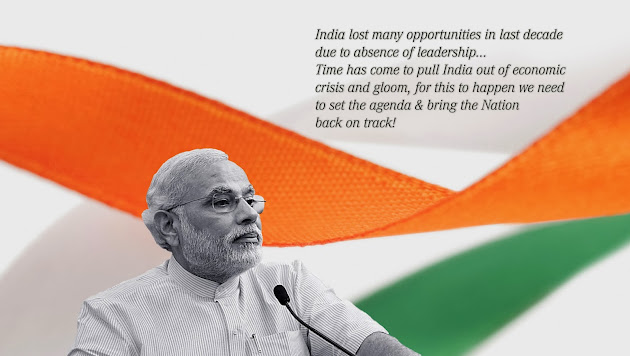
As the day of summing up the results of general elections in India approaches, there remains little doubt among observers about the victory of Narendra Modi.
And among a number of countries there is growing concern over such an outcome. The main question now is whether the West will use its repeatedly tested methods of interference in the internal affairs of other countries in order to prevent an objectionable candidate from coming to power. Comments from Boris Volkhonski, an expert at the Russian Institute of Strategic Studies.
" The Modi wave seems to have swept not only the whole of India, but the entire world press reporting about Indian elections. The closer we move to the results of the elections, the less doubt remains among observers that the Bharatiya Janata Party will form the government and its leader Narendra Modi will become the new prime minister in late May .
However, the prospect of the arrival to power of Modi is, to put it mildly, the cause of concern among a wide range of countries . First of all we are talking about the neighbors . Pakistan is reacting cautiously to the prospects of Modi coming to power because of the charges of his involvement in the Muslim riots in 2002. It is known that a special commission of inquiry did not find Modi guilty of those events, but the image of "persecutor of Muslims" has stuck to him for a long time.
Pakistan and even more so China are clearly wary of Modi’s attempts to play "a strong hand " in matters of national security and foreign policy . Modi himself in the heat of the election campaign gives rise to such fears. He constantly accuses the government of Manmohan Singh of "softness," particularly in relations with China.
However, even in China, many people realize that the seeming toughness of Modi is addressed to a much greater extent to voters within his own country than its neighbors . Neighbors, unlike friends, are not chosen. So, in spite of all temporary differences and disputes, in the end pragmatism and constructive approach prevail in the relations between neighboring countries.
But it is in the West that Modi is seen as the most uncomfortable leader of India, feels Boris Volkhonski . This is especially clear in the U.S., where Modi was for many years ( and, according to the official statements of the Department of State, still is) a persona non grata. And while some Western countries in the last couple of years have started to "mend fences" with the likely future prime minister, a cooling in relations of India with the West and with the U.S. in the first place appears inevitable.
In this respect, an article published in the British "Guardian " on Monday is quite revealing. Its author, a Briton of Indian origin, openly declares that "Britain can't simply shrug off this Hindu extremist.” It is worthwhile to note that UK was the first among the Western countries that started to build bridges with the Chief Minister of Gujarat, when real prospects emerged of his becoming prime minister.
Thus, two circumstances need to be considered . First, Modi’s victory is almost inevitable. Second, it is highly undesirable for the West. So the question arises : how shall the West behave in this situation? This is what Boris Volkhonski thinks about it:
Judging by the events of recent years (Yugoslavia, the "Arab Spring ", Syria and now Ukraine - and this is unfortunately not a complete and probably not a definitive list ), the West has already accumulated rich experience in the treatment of undesirable regimes. And the case of Ukraine showed that democracy itself is not a safeguard against a forcible change of power : in Ukraine as a result of the Nazi coup inspired by the liberal West, the legitimate and democratically elected president was ousted from power.
It is significant that the basis for something like this in India has already been created. "The party of the common man " ( Aam aadmi party, AAP ) was formed (by the way, just like the demonstrations at the Maidan in Kiev ) in the wake of quite justified disturbances that struck the country to show its abhorrence of corruption, and became the most powerful weapon in the fight against the systematic opposition led by BJP which has been rapidly gaining momentum. In this regard, the similarity between the AAP and the West can be seen through quite clearly.
The leader of the party Arvind Kejrival and the related commercial and non-profit organizations have repeatedly received funding from the U.S. Ford Foundation in the past, continues Boris Volkhonski. And the bonds of the party leaders with the U.S. and other Western countries are no longer a secret for anybody.
So the organizational base for a possible "popular indignation" has already been created. The West will hardly dare to play this card immediately after the election - " the Modi wave" in the country is still quite strong . But after a year or two, when the new government will come face to face with the difficulties inherited from the previous government, the “Ukrainian version" of events, accompanied by attempts to overthrow the legitimate government, violence and the real danger of dismemberment of the country can not be completely ruled out.

0 comments:
Post a Comment